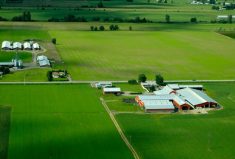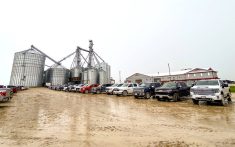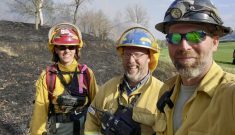The need for better communication and holding proper meetings with advisers and family members were stressed as key factors to successful farm ownership transfers, at a recent farm transition meeting.
Farm financial and legal experts gathered in London, Ont. recently for the Canadian Association of Farm Advisors’ Farm Transition Update.
“I believe the business needs to be prepared for transition before ownership,” says Brent VanParys, a Woodstock-based business transition services partner with BDO Canada.
Why it matters: Uncertainty and potential conflict can’t be addressed if no one talks about it, particularly during transition planning.
Read Also

Ontario’s agri-food sector sets sights on future with Agri-Food 2050 initiative
The first-ever Agri Food 2050, a one-day industry event dedicated to envisioning the future of food and farming in Ontario,…
In VanParys’ experience, farm families might get along and work well together, but how people see the business — its strengths, weaknesses, what people are happy or unhappy with — can be very different. A patriarch, for example, may think the level of financial compensation being given to another stakeholder is more than adequate for the time committed, but the other stakeholder may disagree. If they never directly discuss the issue, the discrepancy persists.
Such issues, VanParys says, must be addressed before effective business planning can occur. If not, they become major barriers later in the transition process.
To this end, he says BDO offers what it calls a “Discovery Questionnaire” service designed to highlight weaknesses and strengths as perceived by each farm stakeholder. With this knowledge, the adviser and farm members can begin discussing each area individually. Once addressed, business-specific transition details may be broached with greater confidence.
“Communication is fundamental. We need good communication in the planning process,” says VanParys.
Margret Hudson, chief executive officer of Burnbrae Farms, says “healthy family, healthy business” is a mantra that is often repeated between her family members. For their large and diverse family egg business, formal business meetings are critical.
Overall, she says they separate governance into three related but separate parts — business, ownership, and family strategy. Elements of each are discussed separately and with regularity, and they bring in advisers early to incorporate impartial, third-party input.
“The more people, the more complicated ownership is,” says Hudson.
Meetings aside, they also try to make expectations clear to all family members. For young family not yet involved in the business, this means being upfront about the requirements of later joining the company — a post-secondary degree, for example. For those who are working in the business, clarity can come from “robust” policies, shareholder agreements, and other formalized agreements.
George Klosler, senior distribution director for Farm Credit Canada in southwestern Ontario, says uncertainty regarding farm transition and the future of farm businesses is frequently identified by farmers and their families as a major source of personal and business anxiety. A general lack of formal transition planning is also common.
Combined, Klosler says this indicates a need for greater help with communication.
“There’s lots of awareness, some training, but relatively little action. Farmers are asking for more succession help,” he says, adding much of the need relates specifically to getting the conversation started.
In response, FCC has expanded its Transition Specialist program from a pilot project in Western Canada to Ontario. This program, says Klosler, involves a designated transition specialist, often accompanying a FCC relationship manager, meeting with the farmer or farm family to determine who to talk to and where to first spend their money, and what questions to ask. It also helps align family members in terms of their individual goals.
This service is free and is designed to help spur families to begin their own transition process, not to develop concrete transition plans.
“I’m told what people need sometimes is a coach… we’ll point them in the right direction and keep them on the action plan,” he says. “We deal with the farms that want to carry on because that’s where the risk is. We have the resources and the capacity to do something for our industry.”















